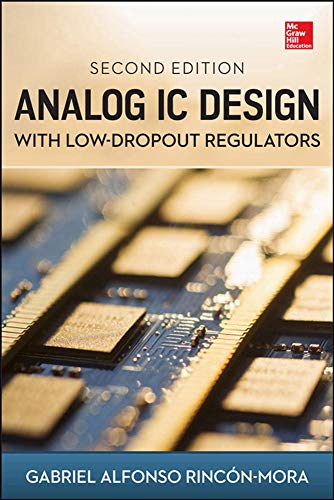

Most ebook files are in PDF format, so you can easily read them using various software such as Foxit Reader or directly on the Google Chrome browser.
Some ebook files are released by publishers in other formats such as .awz, .mobi, .epub, .fb2, etc. You may need to install specific software to read these formats on mobile/PC, such as Calibre.
Please read the tutorial at this link: https://ebookbell.com/faq
We offer FREE conversion to the popular formats you request; however, this may take some time. Therefore, right after payment, please email us, and we will try to provide the service as quickly as possible.
For some exceptional file formats or broken links (if any), please refrain from opening any disputes. Instead, email us first, and we will try to assist within a maximum of 6 hours.
EbookBell Team

4.4
12 reviewsGabriel Alfonso Rincón-Mora (B.s., M.s., Ph.D.) was
a senior integrated circuit (IC) design team leader for
Texas Instruments from 1994 to 2003. He was appointed
an adjunct professor at the Georgia Institute of Tech
nology in 1999, where he became a full-time faculty
member in 2001 and is now a full professor. Since 2011,
Dr. Rincón-Mora has also been a visiting professor at
the National Cheng Kung University in Taiwan. He is
an IEEE Fellow and an IET Fellow, and the inventor /
co-inventor of 38 patents and author / co-author of
more than 160 publications. Dr. Rincón-Mora has writ
ten 8 books and designed more than 26 commercial
power microchips. He received the National Hispanic
in Technology Award from the Society of Professional
Hispanic Engineers, the Charles E. Perry Visionary
Award from Florida International University, a Com
mendation Certificate from the Lieutenant Governor
of California, the IEEE Service Award from IEEE CASS,
and the Orgullo Hispano and the Hispanic Heritage
awards from Robins Air Force Base. Georgia Tech
inducted Dr. Rincón-Mora into the Council of Out
standing Young Engineering Alumni in 2000 and
Hispanic Business magazine named him one of "The
100 Most Influential Hispanics" in 2000. His current
research is on IC systems that draw power from tiny
batteries and ambient energy to supply wireless and
mobile devices